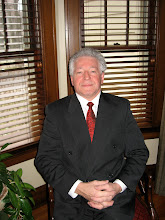WNY should begin taking the steps needed to tap into the ‘blue economy’
First question: What does the Buffalo area have more of than the vast majority of American communities?
Answer: Water.
Second question: What abundant resource are other communities taking smarter advantage of than Buffalo is?
Answer: Water.
Last question: Who is going to do something about it?
To that question there could be several answers, but if Howard Zemsky’s phone isn’t ringing, then Gov. Andrew M. Cuomo must be distracted.
The issue arises from reporter Tom Precious’ fascinating story on the front page of today’s Buffalo News. As other American communities become increasingly parched, especially those in the West, cities that border the Great Lakes are presented an opportunity that they overlook at their own peril.
Those that don’t take advantage of the best responsible use of the inland seas that border them are ceding that economic potential to those that do. So far, that appears mainly to be Milwaukee and Chicago, both on the western shore of Lake Michigan. With two Great Lakes to make use of, Western New York needs to get in on the act quickly.
The possibilities are practically endless, beginning with offering more hospitable locations to companies in areas besieged by drought and without ready access to reliable sources of water. Milwaukee is already doing that.
But the potential goes much deeper. That city, heretofore known for making beer, is in the midst of growing a “water technology” sector in its economy. For example: What are the ways to sustain water and improve its quality? How, why and when do people and industry use water?
This is not a scattershot approach to the subject. Milwaukee is treating water the way Buffalo treats bioinformatics. That is to say, like a business.
Rich Meeusen is a businessman in Milwaukee and a founder of the Water Council, a nonprofit organization that brings together start-ups and established companies, along with scientists. Their goal is to attract new water technologies to the marketplace. Entrepreneurs with marketable ideas can secure seed money in return for a small amount of equity in their companies.
The council is also affiliated with the University of Wisconsin-Milwaukee’s School of Freshwater Sciences, whose computers and testing equipment can assess the potential of ideas. Mentors are easily found. This is a synergy with remarkable potential for economic growth.
Meeusen described the opportunity for all Great Lakes communities aptly: “What oil is to Saudia Arabia, we are to water,” he said.
Water is so common to most people in the Northeast that its potential has been routinely overlooked. But drought, geography and climate change have put other regions of the country at a disadvantage when it comes to water supplies. The communities that border the Great Lakes are sitting on a 21st century gold mine of staggering proportions and seemingly inexhaustible yield. The Rust Belt, some prescient observers say, will soon become the Blue Belt.
There are concerns. The U.S. Army Corps of Engineers just spent $50 million to dredge and clean toxins from the Buffalo River, which, like the Great Lakes, was once used as an industrial dumping ground. Taking economic advantage of this great resource cannot mean repeating such mistakes, or making disastrous new ones. Given modern environmental sensibilities and regulations, that shouldn’t be difficult. Nonetheless, it is important to keep in mind.
Buffalo needs to get busy with this, and there is no one better to lead the charge the Zemsky, the president and CEO of Empire State Development. In addition to his responsibilities for economic development, Zemsky is a Western New Yorker and is close to Cuomo, who has identified himself as one of Western New York’s best friends.
The region is fortunate in that it borders two Great Lakes, Erie and Ontario, each with significantly different characteristics offering different benefits.
Chicago is already taking an interest in water technology, and it’s hard to imagine that Cleveland, Toledo, Hamilton and Toronto won’t also soon follow Milwaukee’s lead, if they aren’t doing so already.
---{-=@
Hickok



No comments:
Post a Comment